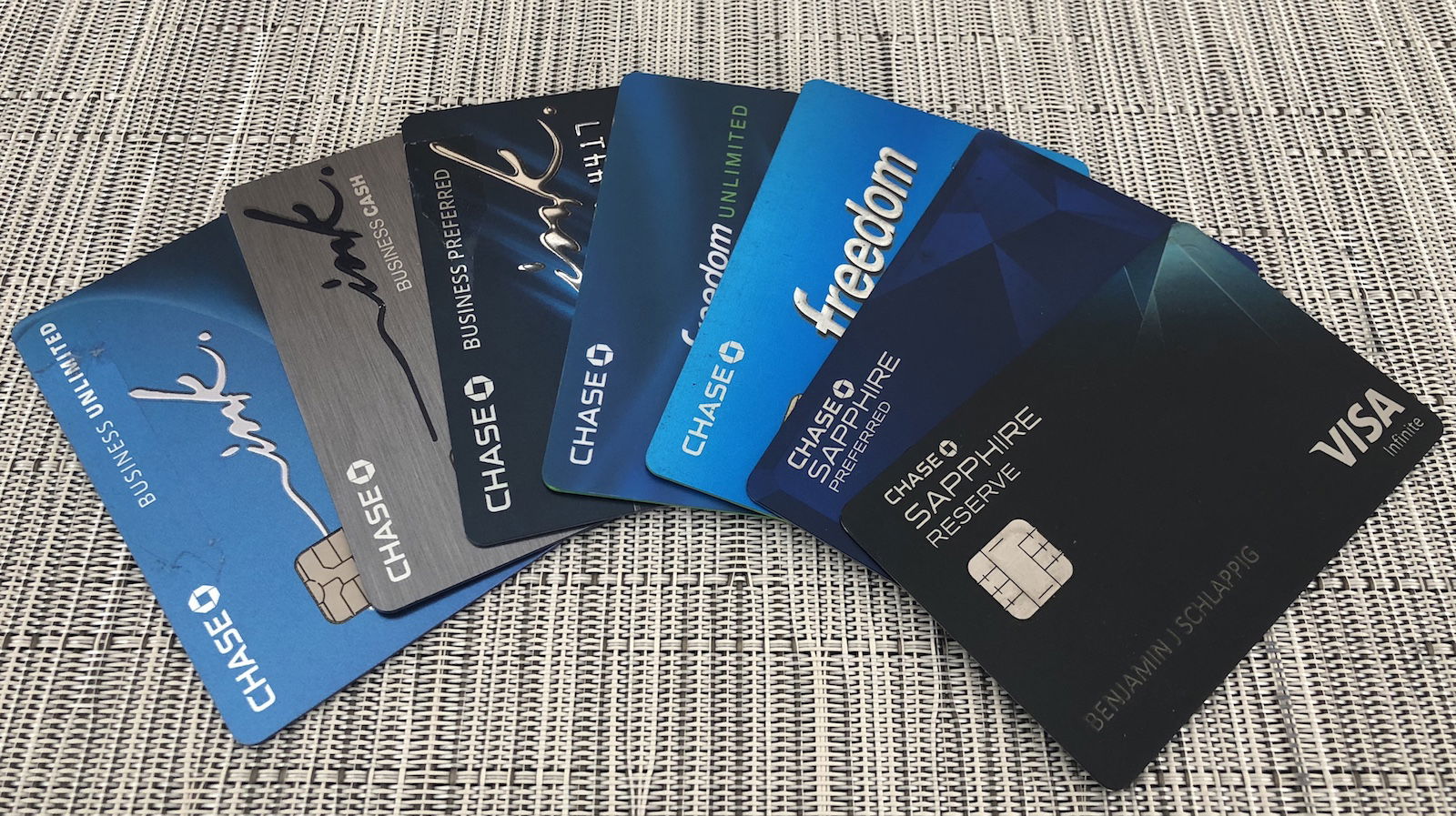The Chase Sapphire Preferred® Card (review) and Capital One Venture Rewards Credit Card (review) are two of the most popular mid-range travel rewards credit cards. While the cards have similar annual fees, most other aspects of the cards differ.
I think both cards can make sense for certain consumers, but given how different they are, it’s worth understanding which card is better for your situation. In this post, I wanted to compare the two cards across a variety of factors.
In this post:
Welcome bonuses: Chase Sapphire Preferred vs. Capital One Venture
Chase Sapphire Preferred: The card offers a welcome bonus of 75,000 bonus Ultimate Rewards points after spending $5,000 within the first three months.
At a minimum, Ultimate Rewards points can be redeemed for 1 cent each toward the cost of a travel purchase (potentially way more), giving the 75,000 points a minimum value of $750. However, I value them significantly more than that, at 1.7 cents each; I value the bonus at $1,275.
Capital One Venture: The card offers a limited-time welcome bonus where you can enjoy $250 to use on Capital One Travel in your first cardholder year, plus earn 75,000 bonus miles once you spend $4,000 on purchases within the first 3 months from account opening. Personally I value Capital One miles at 1.7 cents each, so to me those miles are worth a massive $1,275. Add in the $250 on Capital One Travel and I see the total bonus worth an incredible $1,525.
Winner: Both cards offer excellent bonuses; however, the Venture wins.

Approval odds: Chase Sapphire Preferred vs. Capital One Venture
Chase Sapphire Preferred: For those very involved in miles & points, getting approved for the Sapphire Preferred can be challenging. It’s subjected to the 5/24 rule, meaning you won’t be approved if you’ve opened five or more new card accounts in the past 24 months.
Furthermore, the welcome bonus isn’t available to those who currently have a Sapphire Card (including the Sapphire Reserve), or those who have received a new cardmember bonus on a Sapphire Card in the past 48 months.
Capital One Venture: The Capital One Venture bonus isn’t available to those who have or have had the card, though you are eligible if you’ve had any other Capital One card, including the Capital One Venture X Rewards Credit Card (review).
Winner: It depends on your exact situation, but I think more people will be locked out by the Sapphire Preferred rules than the Venture Card rules. See here for a full comparison of credit card application rules.
Annual fee: Chase Sapphire Preferred vs. Capital One Venture
Chase Sapphire Preferred: The card has a $95 annual fee.
Capital One Venture: The card has a $95 annual fee.
Winner: This is a tie, as both cards have the same annual fee.
Value of points: Chase Sapphire Preferred vs. Capital One Venture
Chase Sapphire Preferred: Points earned on this card can be redeemed in two primary ways:
- They can be redeemed for at least 1 cent each toward the cost of a travel purchase through Chase Travel℠ or up to 1.75 cents with Points Boost
- They can be transferred to Ultimate Rewards airline and hotel partners at a 1:1 ratio, which can get you outsized value
Ultimate Rewards partners include the below (along with transfer ratios and times).
Ultimate Rewards Transfer Partner | Transfer Ratio | Transfer Time |
|---|---|---|
1000 : 1000 | Instant | |
1000 : 1000 | Instant | |
1000 : 1000 | Instant | |
1000 : 1000 | Instant | |
1000 : 1000 | Instant | |
1000 : 1000 | Instant | |
1000 : 1000 | Instant | |
1000 : 1000 | ~ 1 to 7 days | |
1000 : 1000 | Instant | |
1000 : 1000 | Instant | |
1000 : 1000 | Instant | |
1000 : 1000 | Instant | |
1000 : 1000 | ~ 1 to 2 days | |
1000 : 1000 | Instant |
Capital One Venture: Miles earned on this card can be redeemed in two primary ways:
- They can be redeemed for one cent each toward the cost of a travel purchase, either by having a purchase reimbursed, or by booking through the Capital One Travel Portal
- They can be transferred to Capital One airline and hotel partners, generally at a ratio of 1:1
Capital One partners include the below (along with transfer ratios and times).
Capital One Transfer Partner | Transfer Ratio | Transfer Time |
|---|---|---|
1000 : 500 | ~ 24 to 48 hours | |
Aeromexico Club Premier | 1000 : 1000 | Instant |
1000 : 1000 | Instant | |
1000 : 1000 | Instant | |
1000 : 1000 | Instant | |
1000 : 1000 | Instant | |
1000 : 1000 | ~ 3 to 5 days | |
1000 : 1000 | Instant | |
1000 : 1000 | Instant | |
1000 : 1000 | ~ 12 to 24 hours | |
1000 : 750 | ~ 24 to 48 hours | |
1000 : 1000 | Instant | |
1000 : 750 | ||
1000 : 600 | Instant | |
1000 : 1000 | ~ 24 to 48 hours | |
1000 : 1000 | ~ 24 to 48 hours | |
1000 : 1000 | Instant | |
1000 : 1000 | ~ 24 to 48 hours | |
1000 : 1000 | Instant | |
1000 : 1000 | Instant |
Winner: Nowadays I value both Chase Ultimate Rewards points and Capital One miles equally. While Ultimate Rewards points potentially have a higher cash-out value toward travel, both programs have excellent transfer partners.

Ability to earn points: Chase Sapphire Preferred vs. Capital One Venture
Chase Sapphire Preferred: The card offers 5x points on travel booked through Chase Travel, 3x points on dining, online groceries, and select streaming services, 2x points on travel, and 1x Ultimate Rewards points on all other purchases. On top of that, the card offers 10% anniversary bonus points, determined from your base spending amount.
At a minimum, this means that long-term the card is earning a return of at least 3% on dining, online groceries, and select streaming services, a return of 2% on travel, and a return of 1% on other purchases (based on the ability to redeem points for 1 cent each, not factoring in the 10% anniversary bonus).
You can potentially get a lot more value than that, though. For example, I value Ultimate Rewards points at 1.7 cents each (thanks to the transfer ratio for travel partners), so based on my valuation you’re getting a return of 5.1% on dining, online groceries, and select streaming services, 3.4% on travel, and 1.7% on everything else. However, not everyone should value points the way I do, especially if you just plan to redeem them as cash toward the cost of a travel purchase.
Capital One Venture: The card offers 2x miles on all purchases.
At a minimum, this means the card is earning a return of 2% on all purchases (based on the ability to redeem miles for one cent each toward travel purchases). But you also have the opportunity to earn 2x airline miles per dollar spent, and based on my valuation of 1.7 cents per Capital One mile, that’s like a ~3.4% return on everyday spending, which is excellent.
Winner: It very much depends on how much you spend on dining, online groceries, and travel, and how you plan on redeeming your points. The Venture Card offers 2x miles per dollar spent, while the Sapphire Preferred offers 3x points on dining (and more), 2x points on travel, and 1x points on other purchases. For everyday spending, the Venture Card is no doubt better, especially if you want to transfer rewards to an airline or hotel partner.

Perks: Chase Sapphire Preferred vs. Capital One Venture
Chase Sapphire Preferred: The card has no foreign transaction fees, great travel and purchase protection, primary rental car coverage, a $50 hotel credit every cardmember year, and more.
Capital One Venture: The card has no foreign transaction fees, great travel and purchase protection, rental car coverage, a Global Entry or TSA PreCheck credit every four years, and offers two Capital One Lounge or Plaza Premium visits per year (currently only the Capital One Lounge DFW is open).
Winner: Personally I think the Chase Sapphire Preferred has the edge for the car rental coverage and superior travel protection, though if you can take advantage of the Global Entry or TSA PreCheck credit, you may get more value out of the Capital One Venture Card. Thankfully, both cards have no foreign transaction fees.

The potential Chase Sapphire Preferred “X-factor”
Before getting to my conclusion, it’s important to call out one thing that makes the Chase Sapphire Preferred unique. There are many ways to use the Sapphire Preferred to maximize the value you get out of your Ultimate Rewards points. That’s because you can pool points you earn on the Chase Sapphire Preferred with some other awesome Chase cards:
- The Chase Freedom FlexSM (review) has no annual fee and offers 5x points in rotating quarterly categories, for up to $1,500 of spending per quarter, plus 3x points on dining and drugstores
- The Chase Freedom Unlimited® (review) has no annual fee and offers 1.5x points on all purchases, plus 3x points on dining and drugstores
- The Ink Business Cash® Credit Card (review) has no annual fee and offers 5x points on the first $25,000 of combined purchases per cardmember year on office supply stores, internet, cable TV, mobile phones, and landlines, and 2x points on the first $25,000 of combined purchases per cardmember year on restaurants and gas stations
- The Ink Business Unlimited® Credit Card (review) has no annual fee and offers a flat 1.5x points on all business purchases
- The Ink Business Preferred® Credit Card (review) has a $95 annual fee and offers 3x points on the first $150,000 spent each cardmember year on travel, shipping purchases, internet, cable, phone services, and advertising purchases made with social media sites and search engines
As you can see, these cards are all great complements that can greatly increase the pace at which you earn Ultimate Rewards points. For example, if you pair the Chase Sapphire Preferred with the no annual fee Chase Freedom Unlimited you’d earn 3x points on dining, online groceries, streaming services, and drugstores, 2x points on travel, and 1.5x points on all other purchases, which is an incredible rewards structure with a single $95 annual fee.
Of course, this assumes that you’re willing to get multiple cards, which some people aren’t.
The Capital One Venture has a straightforward points structure without many bonus categories, and there are some limited opportunities to pair it with other cards. For example, the Capital One Savor Cash Rewards Credit Card (review) is a rewarding cash back card that offers 3% cash back on dining, grocery stores (excluding superstores like Walmart® and Target®), entertainment, and popular streaming services.
If you have both the Venture and Savor, then you can combine rewards between the two accounts, and each cent will get you one Capital One mile. So this is a good opportunity, but as you can see, the opportunities aren’t as robust as with Chase cards.

So, which card is better?
The Capital One Venture is a well-rounded card for anyone who doesn’t spend a lot in categories that are otherwise eligible for bonuses. The card offers a generous welcome bonus, no foreign transaction fees, Global Entry fee credit, and more. The card also offers an excellent return for those who are looking for cash back toward travel, and Capital One also has great airline and hotel transfer partners.
The Chase Sapphire Preferred, on the other hand, offers bonus points on dining and travel, and best of all, the ability to combine points with some other great cards that have excellent bonus categories as well.
Between these two cards, I’d say that if you just want to use one card for everything and don’t spend that much on dining and travel, the Venture Card is a solid option. The card is straightforward and flexible, and that’s awesome.
Meanwhile, if you do spend a lot on dining and travel, and if you’re willing to combine the card with some other excellent ones, the Sapphire Preferred would be my first choice.
Personally, I think the combination of the Chase Sapphire Preferred and the Chase Freedom Unlimited is tough to beat if you’re willing to get two cards.
Which do you prefer — the Capital One Venture Card or Chase Sapphire Preferred Card?
For Capital One products listed on this page, some of the above benefits are provided by Visa® or Mastercard® and may vary by product. See the respective Guide to Benefits for details, as terms and exclusions apply.





Thanks Ben, can I downgrade my Venture card to no AF Venture ONE? Just for the new AF posted for the Venture and I dont plan to use it as much anymore. thanks!
As the comments show, people like the ability to transfer miles to a program where they are also earning miles through domestic flying. The same principal applies to hotel programs. This is why Ultimate Rewards (Delta, Marriott, Hilton) and Membership Rewards (United, Hyatt, Marriott) will always have an advantage over CapOne (mostly international airlines) and Citi (lacks American Airlines).
That said, after I meet my $30K of spending to get my Delta MQD waiver...
As the comments show, people like the ability to transfer miles to a program where they are also earning miles through domestic flying. The same principal applies to hotel programs. This is why Ultimate Rewards (Delta, Marriott, Hilton) and Membership Rewards (United, Hyatt, Marriott) will always have an advantage over CapOne (mostly international airlines) and Citi (lacks American Airlines).
That said, after I meet my $30K of spending to get my Delta MQD waiver / MQM boost, I put unbonused spend on my CapOne Venture to earn 2x. In terms of dining, travel, etc, I split between Amex Gold and Chase Sapphire Preferred.
@Anthony....I think you have your transferable points confused. Membership Rewards points do NOT transfer to United and Hyatt which you list and UR points do NOT transfer to Delta and Hilton which you list.
I don't see value in the Capitol One card. I don't fly the airlines they are associated with. And their points values aren't that great. I am closing my card on this one.
I totally love the Chase Sapphire and love the transferrable airlines and hotels associated with that card. This is definitely a keeper.
@ Dee -- Keep in mind that the beauty of airline miles is that you don't have to redeem them on the airlines with which you accrue them. More often than not, you'll find better values racking up miles with one program and them redeeming them for travel on another airline.
Lack of transfers to United makes Venture one less interesting. But I do have the Chase Reserve, Venture one and Amex Gold
@ Marcus -- Out of curiosity, how are you looking to redeem United miles? Keep in mind that Capital One does partner with Air Canada Aeroplan, which gets you access to award available on all Star Alliance airlines, plus lots of other great airlines. I find Aeroplan to be much more useful than MileagePlus, personally.
I very recently made the decision to move all my "everyday" spend on non-bonus categories to my Cap One Venture compared to Freedom Unlimited -- including taking the time to shift recurring charges. Have CSP as well and so use that for travel, dining, streaming, and now only use Freedom Unlimited for drugstores. This way, I'm earning at least 2 points for everything, and I'm starting to see the light of Aeroplan so the Cap One miles will most often be going there.
@ TheRubioRoom -- Smart strategy (though admittedly I'm biased, because that's basically my strategy as well)!